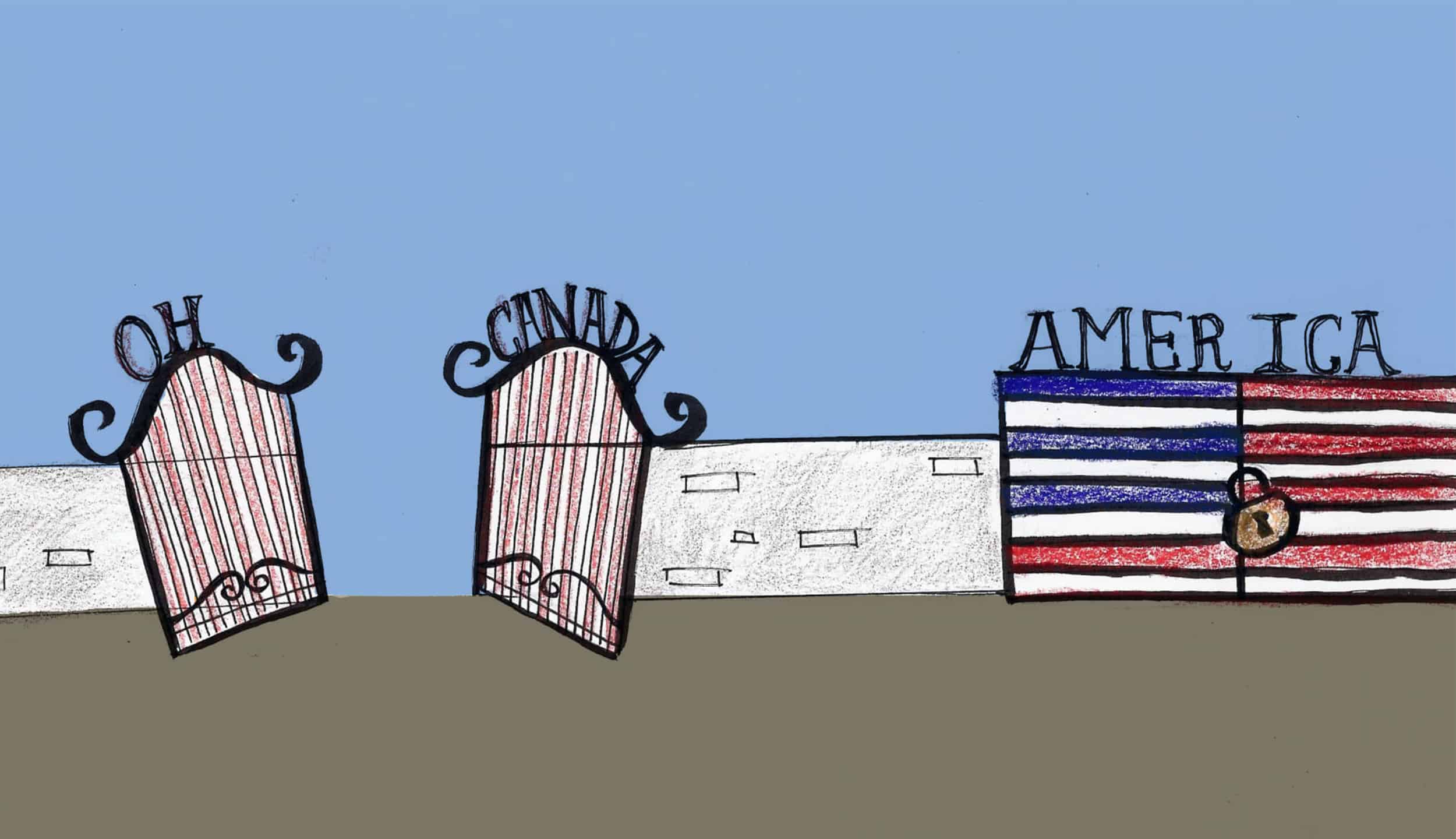President Donald Trump stunned the public by issuing an executive order travel ban only a week into his term. The ban suspended the Syrian refugee program indefinitely, halted the rest of the US refugee system for 120 days, and prohibited entrance into the United States for 90 days to citizens of Syria, Iran, Libya, Iraq, Sudan, Yemen, and Somalia — all predominantly Muslim countries.
After Trump’s order was signed, Prime Minister Justin Trudeau tweeted about Canadian acceptance and diversity, but failed to mention Trump’s refugee ban outright. When asked in the House of Commons if he felt that the ban was an insult to Canadian values, Trudeau tap-danced around the issue without condemning Trump’s order.
While Trudeau skates away from direct confrontation with Trump at every turn, indignant Canadians and marginalized communities demand a harsher response from our country.
Some think that if we ignore Trump’s racist agenda, we fuel it. Yet in this case, tact ought not to be confused with indifference, and the absence of a solid voice of dissent serves Canada politically. A significant performance boost in Canadian refugee programs can atone for past mistakes while preventing new ones. Therefore, Canadians should open their doors — not merely their mouths — in response to Trump’s refugee ban.
The relationship between the United States and Canada offers both nations mutual and necessary support. Formalized in 1989, the Canada-US Free Trade Agreement — and later, the North American Free Trade Agreement — simplified trade between the two nations. In 2015, Canada spent $431.9 billion CAD — $337.8 billion USD — on US goods and services. In the same year, 94 per cent of Canada’s energy exports went to the United States at a value of $96 billion CAD.
Moreover, Canada depends on the US for joint protection and security. For instance, the bi-national North American Aerospace Defence Command uses the resources of both nations to monitor man-made entities in outer space and determines whether or not they threaten the safety of either nation.
Canada’s interdependent relationship with the US consequently complicates our position. As stated by Liberal MP Andrew Leslie on CBC Radio, because the Americans are “our closest friend and biggest ally,” we have a responsibility to settle our differences quietly. Leslie cautioned against the desire to call them out on the world stage because “that’s not what friends do.”
In summary, to protect the time-honoured friendship between Canada and the US, the Canadian response to Trump’s executive order must be drawn delicately.
This should not dampen our Canadian values. Regardless of whether or not the government condemns the US publicly, it must take action to prevent the detrimental backlash this ban promises to bring.
Passed in 1988 under then-Prime Minister Pierre Trudeau, the Canadian Multiculturalism Act enshrined multiculturalism as a Canadian value. Many Canadians, if not most, pride themselves on the country’s openness towards cultural difference and expression and consider multiculturalism a core Canadian value — one that celebrates benevolence and goodwill.
Despite typically considering Canada a welcoming country, we cannot forget that, historically, it has closed its borders when help was most urgently needed. After the Fugitive Slave Act of 1850, for example, Black refugees escaping slavery in the United States were not welcomed by white Canadians and lived difficult lives upon entering this country.
During the Holocaust, Canada exhibited racism by closing its doors to Jews seeking refuge. Canada held 2,300 Jewish refugee men from Austria and Germany in camps between 1940–1943.
To stay silent in the face of suffering would arguably, and unfortunately, be on par with this history. Instead, Canada must pair its discrete disapproval of US affairs with a superior — and more expansive — refugee program. In doing so, Canada can atone for its past indifference and aid those in need in the present.
When students at the University of Toronto held a vigil for the victims of the Québec City mosque attack, the country’s true essence shone through, and it became clear that Canada refuses to be divided by race or religion. In this vein it is action, not words, that should characterize our national response to Trump’s refugee ban.
Canada’s new refugee initiative must account for two things: the surplus of people fleeing war-torn nations and the absence of American support. Removing the 1,000 cap on privately sponsored refugees — as NDP MP Jenny Kwan has suggested — would help more people than simply directing criticism at an administration that seems to be steadfast in its convictions. The cap prevents Canadians from aiding more refugees, and removing it would require no government funding, since the initiative is privately sponsored by Canadians themselves.
There are also a great many initiatives and programs that can increase the quality of life for refugees who get to Canada. Canada should reframe its friendly invitation to refugees as a compassionate promise to do whatever is in our nation’s power to alleviate the burdens of those in need.
Casting incessant blame and needless commentary is not the Canadian way — not in the absence of action. To rebuke a nation with fundamentally different values and practices is a waste of time and breath. Yet with open doors and open hearts, Canadians can show refugees whose side we are truly on.
Jenisse Minott is a second-year student at UTM studying Communication, Culture, Information, and Technology. Her column appears monthly.


